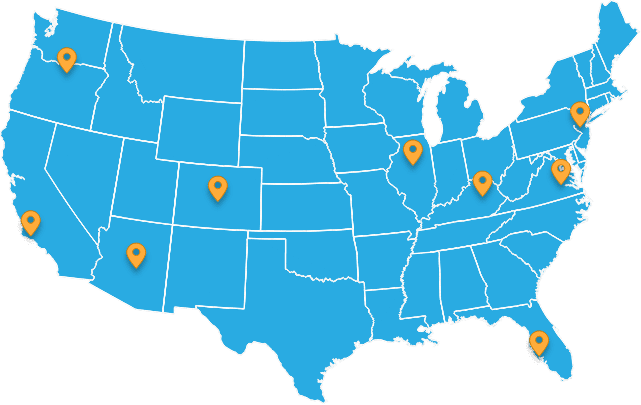Our Results Set Us Apart
The first 4 ways we beat out competitors
Unparalleled experience: Each of our two founders have been doing online marketing for over 23 years. We have a proven track record of awesome outcomes for hundreds of clients.
Client retention rates: Clients stick around. We have clients for over a decade. You can see a wide variety of testimonials and client reviews where clients proudly achieved their goals.
Credentials: One of our founders was a CPA and a lawyer before switching gears into entrepreneurship where he ran an ecommerce business before co-founding the agency. We have lots of certifications too.
Portfolio: Visit our portfolio section to see examples of website designs, marketing campaigns, and other materials that showcase our agency’s talents and capabilities.
3 reasons why clients put us on a pedestal.
Industry Leading Client Retention Rates: We keep clients happy. For many years. Not just a few months. We tend to overdeliver and do many things beyond the scope of our engagements which is part of why clients stick with us for a long time, even more than a decade.
We Are Very Reachable in Real Time: When you call, email, or message us, we respond quickly – typically within the hour. You will never get that awful feeling in your stomach that so many dissatisfied clients experience when they can’t seem to reach their web guy or marketing team in real time. We are timely. It’s a personal mandate.
No Salespeople: You work with the people doing the work for you. Gone are the days where you are in a meeting and your rep says, “I need to go check with the people who did the work.” If you are doing SEO, we have the SEO people on our review calls. Same for social media or paid advertising.
What do we do?
We build and promote websites that generate high-quality traffic which turns prospects into leads.
We also craft online reputations to position you as an industry expert & thought leader.
We do this by …
- Creating eye-catching websites
- Getting top Google rankings
- Managing online ad campaigns
- Spreading the word on social media
How we grow businesses
Start with a mobile-friendly website
- Design a user experience with an improved and intuitive website look and feel.
- Make sure the website aligns with your logo, brand, and overall style
- Engaging customer-centric website that looks fresh and original rather than an off the shelf pre-used design that was hacked together from a template directory.
- WordPress specialists secure your site to protect against potential cyber threats.
- Responsive design that looks and works well on a mobile phone (Android or iPhone)
- Website coding improvements that are optimized for better search engine rankings.
- Faster loading pages – typically under 3 seconds
- Thorough testing and debugging to ensure the website is functioning properly.
- Pass the Google “Core Web Vitals” online testing protocol.
- Get all the CRM and appointment features of your website to work well together .
- Increase in your website conversion rates as more people who visit your better-looking website turn into leads and/or customers.
- Training and documentation to manage and update your website content.
Optimize the website for Google rankings
Increase search engine visibility for relevant keyword search phrase queries on Google and Bing. The improved website ranking on search engine results pages (SERPs) will be due to the following actions your marketing agency should be pursuing:
- Acquiring strategic and authoritative (that means these are from powerful sites) backlinks pointing to your website.
- Doing “on-page” optimization of your website content to improve things like meta-tags, header tags, schema coding, and other coding and content related items that directly impact search engine rankings capability.
- Correlation analysis of your content to see what levers to pull inside your website content and/or coding to outrank competitors’ optimized websites.
- Increasing your citation listings presence and local website connections in order to get you more visible in local search results and Google maps listings.
- Optimize your Google Business Profile including weekly Google Posts
- YouTube and Video Marketing to optimize your video content which leads to increased engagement and more lead generation.
Run online ads to bring in good traffic
Introduce a Pay-Per-Click ad campaign on Google and Bing that leads to increased visibility and website traffic through search engine channels. Earn more money on your monthly ad spend.
Adopt a Remarketing ad campaign strategy to drive people back to your website. This is a critical piece of lifecycle marketing. If you spend all this effort (and money) getting people to discover your website for the first time, you need to spend less to drive them back. You can utilize “retargeting ads” that are designed to ONLY target people who have previously interacted with your website or social media accounts.
These are the some of the core deliverables you should expect from a Google or Bing Ad campaign.
- Writing (and re-writing) better ad copy to improve click-through rates (CTR) – which directly impacts ROI.
- Improve conversion rates on paid search ads by doing a better job connecting the keywords you are bidding on with the landing pages people are visiting.
- Study competitors’ ad campaigns to see what might be missing in your campaigns.
- Do negative keyword analysis to remove unwanted clicks from your campaigns.
Publish content that attracts attention
Through creating valuable, informative, and engaging content, you can attract and engage potential clients, and establish more trust and credibility, in order to ultimately drive client conversions.
The type of content you create will depend on your goals, target audience and the investment of resources into producing valuable information that will help the potential clients in making an informed decision (to hire you of course).
Here are some examples of the types of content you should expect a marketing agency to help you publish:
- Blog Posts: Writing and publishing regular blog posts on topics related to your areas of expertise. For example, a criminal defense law firm could write about recent court cases, legal changes, or common misconceptions about criminal law.
- E-books and Whitepapers: Creating in-depth, informative guides and reports on specific topics. For example, an employment law firm could create an e-book on navigating workplace discrimination laws or a whitepaper on the impact of recent labor law changes.
- Case Studies: Highlighting past successes and the impact you have had on clients.
- Infographics: Creating visually appealing graphics that explain complex or even boring concepts in an easy-to-understand and more interesting way.
- Videos: Creating videos that explain hard to master concepts, answer common questions, or showcase your team members and their qualifications.
- Webinars: Hosting live or pre-recorded webinars on topics that allow attendees to interact with your leaders and to ask questions.
- Podcasts: Hosting a podcast on topics that are timely and relevant.
- Social Media Content: Creating social media posts that highlight your expertise, share news and updates, and engage with followers.
If you do a good job producing quality content and getting that content out online in the right channels, you can expect to produce these kinds of results:
- Increase brand awareness and thought leadership.
- Improve engagement and lead generation.
- Increase website traffic through content promotion and link building.
Spread the word on social media channels
Social media marketing provides an effective way to connect with potential clients, build brand awareness, and drive more website traffic.
By leveraging the power of platforms like Facebook, Twitter, Instagram, LinkedIn, and others, you will be able to efficiently reach a wide audience, increase brand awareness, engage with potential clients, and ultimately drive more leads and conversions.
Here are a few specific ways that social media can be an effective way to grow your book of business.
- Building a Fan Base from Multiple Targeted Audiences: You can target specific demographics, interests, and behaviors, which can you connect with potential clients who are most likely to be interested in your services. For example, a family law firm can target people who are engaged or recently married and living in a specific location.
- Creating Engaging Content: Use blog posts, infographics, videos, and live videos, to attract potential clients, establish trust, and build a relationship with them.
- Networking: Connect with other professionals in your industry and build relationships with them that can lead to referral business and collaborations.
- Reputation Management: Monitor and respond to online reviews and customer feedback, which can help you improve your online reputation and attract new clients.
- Showcasing Expertise: By sharing updates and insights, you can establish thought leadership and showcase your expertise to potential clients.
- Paid Social Advertising: Reach a large audience by targeting groups of people with specific demographics, interests, and behaviors.
- Measure Performance: Each social media platform provides detailed analytics on engagement and reach, which can help you track and measure performance of your efforts and make better data-driven decisions.
Nurture relationships via email
Email marketing is one of the most cost-effective ways to connect with potential clients, nurture your leads, and ultimately drive more and better conversions. You can use highly targeted, extremely personalized, and visually engaging email campaigns, to build and nurture relationships with potential clients.
The following results are focused on achieving these goals through effective email marketing strategies.
- Cost-effective: Compared to other forms of digital marketing, email marketing is relatively inexpensive. It requires little more than an email marketing service and a list of contacts to get started.
- High open and click-through rates: Email marketing when they know your brand has a high open and click-through rate compared to other forms of digital marketing. According to a study by Campaign Monitor, the average open rate for email marketing is around 24% and the average click-through rate is around 3%.
- Targeted and personalized: Email marketing allows businesses to target specific segments of their email list and personalize messages to individual recipients.
- Measurable: Email marketing platforms provide detailed analytics on email campaign performance, which makes it easy to track and measure the ROI of email marketing efforts.
- Automation: Email marketing automation allows businesses to send targeted and timely messages to leads and customers without the need for manual effort. This can improve the conversion rate and ROI.
- Cross-channel integration: Email marketing can be integrated with other marketing channels such as social media, content marketing, and retargeting campaigns, which can improve the overall ROI.
It’s worth noting that the ROI of email marketing can vary depending on your goals, target audience and the quality of your email list.
Broadcast a positive online reputation
How you look online can have a significant impact on whether or not prospects pull the trigger to hire you. You might receive awesome referrals but if prospects see bad reviews or bad listings on Google, you run the risk of them looking to alternative service providers. You need an online reputation campaign that earns you higher search engine rankings, positive reviews, and high ratings.
Online reviews and ratings are one of the first things potential clients look at when researching a business. A positive reputation can help build trust and credibility with potential clients, while a negative reputation can harm it.
Positive reviews and ratings can serve as social proof that your brand is trustworthy and provides high-quality services. Negative reviews and ratings can have the opposite effect, deterring potential clients from choosing a firm like yours.
Here are the top services your digital marketing agency needs to accomplish to secure your online reputation:
- Monitor online reviews and customer feedback: This includes monitoring review sites like Google, Yelp, Avvo and others, as well as social media platforms, to ensure that your firm is aware of all reviews and feedback.
- Respond to online reviews and customer feedback: Quickly and professionally respond to both positive and negative reviews and feedback, showing that your business values and cares about clients’ opinions.
- Encourage positive reviews: Encourage satisfied clients to leave positive reviews on review sites and social media platforms.
- Address and mitigate negative reviews: Work with clients to address any issues that led to negative reviews, and take steps to mitigate the impact of negative reviews on the firm’s online reputation.
- Optimize online listings: Make sure your business information is accurate and up-to-date on relevant online directories and review sites.
- Create and promote positive content: Create and promote positive content that highlights your expertise and positive reviews.
Track progress and adjust marketing efforts
This is where we measure the impact of all the marketing efforts above to see what’s working well and what’s not working well at all. We use tools such as Google Analytics, Tag Manager, and Google Search Console, as well as 3rd party tools like Ahrefs or SEMRUSH to track website metrics, create custom reports and analyze data that will contribute to improving the campaign performance and the return on investment (ROI).
To put it bluntly, we are going to direct the good money toward the efforts producing good results and pull back resources on the efforts that are failing.
Here are a few examples of valuable reports, insights, and areas of improvement you should be receiving from your marketing team:
- Website performance: Understanding how visitors interact with your website, including pages visited, bounce rate, time on site, and conversion rate.
- Search engine optimization (SEO): Track the performance of organic search, including the keywords that drive traffic to the website, the ranking of the website on search engines, and the backlinks to the website.
- Paid advertising: Track the performance of paid advertising campaigns, including click-through rate (CTR), cost per click (CPC), and conversion rate.
- Social media: Understand the engagement and reach of social media posts, as well as the demographics of followers.
- Email marketing: Track the open and click-through rates of email campaigns, as well as the conversion rate of email campaigns.
- Online reputation: Monitor online reviews and ratings on review sites and social media platforms.
- ROI: Track the return on investment (ROI) of digital marketing campaigns by measuring revenue generated and costs incurred.
- Funnel analysis: Understand how visitors move through the website, from initial visit to conversion, and identify any drop-off points.







